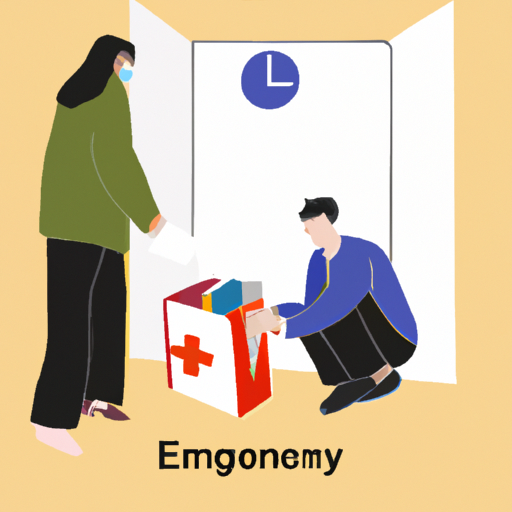Canadian Opioid Crisis: The Emergency Response Approach to Opioid Users
The Canadian opioid crisis remains an unsolved epidemic, causing untold suffering and disruption as it wrecks individuals, families, and communities. A recent article paints a clear picture of the problem and highlights one unconventional solution – initiating withdrawal management for opioid users within emergency rooms. This blog, therefore, seeks to dissect the idea and its probable impact on the opioid crisis.
The Opioid Crisis in Canada: A Brief Overview
Canada is grappling with an opioid crisis that has led to thousands of overdose-related fatalities, increasing crime rates, and a growing number of homeless individuals. As if that is not enough, the crisis has overloaded the healthcare system and exerted unnecessary pressure on the economy as eluded in this article.
The Proposed Solution and its Merits
In a bid to combat these drastic effects, researchers and health experts are proposing an alternative approach— provide opioid users with withdrawal medication right inside the emergency rooms. This idea, however simplistic it sounds, could be a game-changer in the protracted war against opioid misuse.
A Glance at the Key Benefits of the Proposed Solution
Implementing this strategy is expected to foster numerous positive returns in addressing the opioid crisis, which include:
- Improves immediate access to care: By treating opioid-dependent individuals in emergency rooms, we potentially eliminate bureaucratic hurdles and time wastage, thereby enhancing immediate access to withdrawal medications.
- Boosts treatment adherence: Luo et al.’s study pointed out that initiating withdrawal management in the emergency department led to more people adhering to treatment 30 days later than those given a referral alone.
- Promotes safer communities: Treating opioid users in emergency rooms lowers the number of people using the street heroin laced with deadly synthetic opioids like fentanyl, which in turn would reduce opioid-related fatalities.
Other Measures in Fighting the Opioid Crisis
Further than immediate treatment, various actions on different levels—individual, community, regional, and national—are critical in fully addressing the opioid crisis. Included in these are:
- Education and awareness: Regular community sensitization on the dangers of opioids and the importance of seeking help can curb misuse and foster early detection and treatment of opioid addiction.
- Inclusion of naloxone kits: The government should ensure the widespread distribution of naloxone kits—an opioid overdose reversal drug—to communities at risk. This initiative could save thousands of lives each year.
- Lawsuits and opioid class actions: Businesses and individuals promoting the illegal trade and abuse of opioids should face severe judicial penalties to set an example and deter others.
Closing Thoughts on the Canadian Opioid Crisis
The Canadian opioid crisis underscores the exigency to seek radical measures in handling opioid dependence. Introducing withdrawal management for opioid users in emergency rooms stands out as one such measure worth exploring. Although it’s not a silver bullet to the crisis, it would bring the country a significant step closer to eradicating the opioid menace.
In conjunction with other measures, such as public education on opioids, widespread naloxone kits distribution, and judicial penalties on opioid abusers, the country can make meaningful strides towards solving the opioid crisis. The bottom line is: swift and drastic action is needed to curb this insidious epidemic, whose toll on Canadian society is too heavy to bear.
